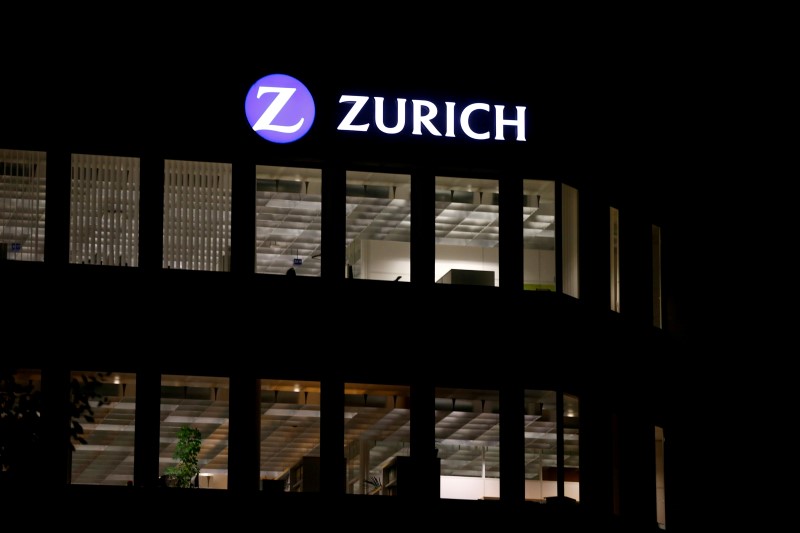By Nichola Saminather
SINGAPORE (Reuters) - As returns on traditional assets have nosedived or turned more volatile in Asia, conservative investors such as pension funds and insurers have been pouring cash into alternative investments that bring the yield they need, but at significantly higher risk.
Many countries in Asia only started to cut interest rates in 2015 or 2016, but they are now at or near record lows and expected to fall further; India, South Korea, Indonesia, Taiwan and Thailand are all likely to see rate cuts this year, according to economists at Nomura.
The resulting decline in bond yields has hit the region later than many other parts of the world, but is now forcing a strategy rethink for investors who need predictable income to match their fixed commitments.
Zurich Insurance's Asian division, for example, is considering investing in private debt including collateralised loan obligations and commercial real estate and infrastructure debt.
"We simply have to accept that returns going forward will be lower than what they have been historically," said Michael Vos, Asia-Pacific investment manager at Zurich. "There is no free lunch - if you want higher returns, you need to take more risk."
Risks include a dearth of buyers when you want to sell, a greater chance of loan defaults, and lower levels of disclosure about the underlying assets.
Credit Suisse (SIX:CSGN) said it, too, was increasing allocations to hedge funds and senior secured bank loans on behalf of Asian institutional clients.
Swiss private bank Union Bancaire Privee (UBP) said it was switching more of its high-net-worth clients' money from low-yielding bonds and volatile stocks into hedge funds, real estate debt and insurance-linked securities.
"There is no doubt that the risk/reward of equity and fixed income markets have deteriorated dramatically over the last six to 12 months," said Ted Holland, Hong Kong-based Asia-Pacific head of business development for UBP.
"Finding 'low-risk' yield in this environment has been particularly difficult."
This rapid change in climate is demonstrated by GIC Pte, Singapore's biggest sovereign wealth fund.
Its portfolio return slowed to 3.7 percent per annum over the five years through March 2016, from 6.5 percent in the five years ended in March 2015, and it warned difficult investment conditions would persist for a decade.
A survey by State Street Global Investors in July found that 44 percent of 72 Asian pension funds, which must keep a steady income flowing to pensioners, are seeking higher-risk, higher-return strategies.
South Korea's National Pension Service, facing lower domestic bond yields than U.S. Treasuries, plans to increase its alternative holdings to 35 percent of assets by 2020 from 10.7 percent in 2015, and will begin investing in hedge funds this year.
It reported preliminary returns of 4.6 percent for 2015, down from 5.25 percent in 2014.
RISK TRADE-OFF
The trade-off in this hunt for yield is an increase in risks that require careful management.
Chief among them is a lack of liquidity. Many alternative investments, such as property or private equity, can't be readily turned to cash, so investors can't get their money out in a hurry. In a falling market, buyers for such assets become yet more scarce, exacerbating the falls.
They are also typically unlisted, so they are much less transparent than traditional investments, which are priced in real time on formal exchanges that typically demand more stringent governance and disclosure requirements.
"There are also not many reliable or accepted benchmarks out there, so how do you measure the performance of your portfolio versus the performance of the market?" said Beng-Eu Lim, Asia Pacific head of asset owner sector solutions at State Street.
If investors are stepping down the yield curve to instruments that don't carry an investment grade imprimatur from credit rating agencies, the risks of default are also higher.
Vos at Zurich acknowledges that investors in alternative assets need to take protective measures.
"When you take higher risk, it is important you have sufficient capital to absorb the extra volatility that comes with taking this additional risk so we are not forced sellers at the bottom of the market," he said.
But even private individuals are pouring into such investments.
Alternative investments made up 15 percent of Asian high-net-worth individuals' portfolios as of May 2016, almost double the level from three years ago, and are expected to rise further over the next year, according to market research firm East & Partners Asia.
UBP said some of its clients were raising their exposure to alternatives to as much as 50 percent of their portfolio, up from about 20 percent previously.
That flood of cash could ultimately defeat the investment rationale for yield-hungry investors.

"The weight of money coming into this sector can be overwhelming," State Street's Lim said. "As demand outstrips supply, that's going to raise the price and reduce expected returns."